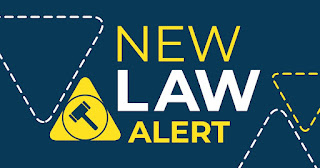New York State has adopted Sick Leave requirements for employers to follow under NY Labor Law § 196-b. With the new rule having become effective on 12/22/21, employers and their HR teams need to get up to speed quickly.
The new rule requires employers of 3 different categorical sizes to provide a minimum number of paid sick leave hours for employees depending on the size of the employer and its net income.
The rule does the following:
- Establishes standards of how employees shall accrue sick leave at a rate of no less than 1 hour per every 30 hours worked;
- Protects employees from having to disclose confidential health information to employers as a condition to taking sick leave;
- Sets up conditions for employees carrying over unused sick leave over to the following calendar year;
- Creates protections to prevent employers from retaliating/discriminating against employees for exercising his/her sick leave rights;
- Requires employers to provide written records of sick leave accrual upon employee request;
- Requires that employees returning from sick leave be restored to their position prior to the sick leave with the same pay & other terms / conditions of employment; &
- Allows for collective bargaining agreements to be entered into that provides for paid sick leave.
Before the rule became effective, employers commented and expressed their concerns, under the regulatory process, and the government's responses have clarified the following facts:
- Newer employees will abuse sick leave because the rules allow employees to immediately use sick leave upon accrual;
- Carrying over unused sick leave days to following years is problematic (per DOL, employers may either: (1) give employees the option to voluntarily elect to use & receive payment for paid sick leave prior to the end of a calendar year or carry over unused sick leave; or (2) only allow employees to carry over unused sick leave);
- Conflicts can arise between sick leave requirements and other leave policies if not clarified in the employer's policy manual;
- Employee abuse systems need to be in place within an employer's policy manual or issues will arise; and
- Collective bargaining agreements need to be addressed to comply with the new rule.
This new sick leave rule will continue to raise concerns by employers and employees, but proactive employees with great policy manuals / collective bargaining agreements, which have been updated to reflect the new rule will win the day. Otherwise, there are going to be a lot of discrimination and retaliation claims when sick leave issues arise.

